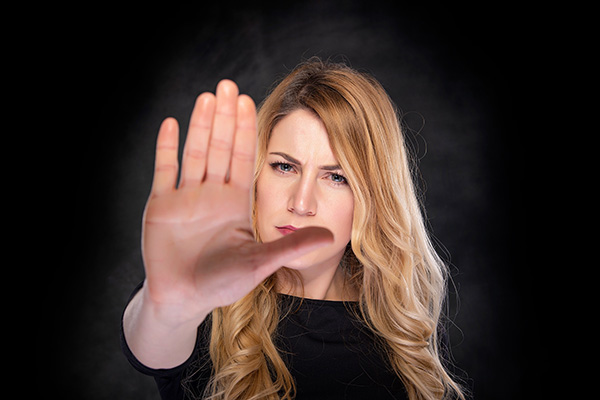self-respect
How To Have A Peaceful Christmas This Year
A s magical a time of year as Christmas may be, it can still be somewhat stressful.
s magical a time of year as Christmas may be, it can still be somewhat stressful.
Nevertheless, with a little pre-planning, you should be able to get your Xmas off to a good start and enjoy the celebrations to the maximum without experiencing too much stress and drama in the process!
How good is that? Here’s how.
Set Clear Intentions
Let go of the idea that Christmas must be traditional and ‘perfect,’ and that you must make it that way for everybody. Set instead a clear intention for what your ideal Christmas will be.
After that, all you need to do is make plans that go along with your vision. Having established what Christmas really means to you, you can then use it as a guide to prepare your celebrations.
Keep It Simple
Simplicity ensures peace and calm, whereas complexity causes stress and drama. It really is as simple as that! It is imperative that any Christmas plans you make are as simple, straightforward and as streamlined as possible. Doing so should help to create a sense of calm and empowerment, which you will no doubt need to take into the New Year with you.
Not A People Person, Or Pleaser, And That’s Okay!
 I have had clients tell me that they feel something is wrong with them, because they don’t like to be around people. They prefer solitude.
I have had clients tell me that they feel something is wrong with them, because they don’t like to be around people. They prefer solitude.
Others feel disconnected when around people, or it makes them feel smothered. People make them feel drained, or they feel out of their element.
If you are someone that does not like to be around people, or feels a sense of disconnect when in large groups, or even just engaging with others, fear not! I have some very good news to share with you.
It is my hope and prayer that this information will help you to stop being so hard on yourself when it comes to your social preferences. You do not need to feel guilty for not wanting to slap on a “happy face” and pretend to be someone you are not.
There is nothing wrong with you in my opinion. There is a simple reason why you don’t enjoy being around other people so much. The reason is that you have been to this planet many times before and basically you have “been here done this,” as it were.
Okay, so you don’t feel like being around your fellow humans. What to do? Tell yourself this, “it is okay that I don’t want to engage with others.” Then tell yourself, “I love myself just the way I am and now see the beauty in me that I never did.
But instead of judging myself, or thinking there is something wrong with me, from this day forward I promise to allow myself to embrace the freedom of placing myself where I feel comfortable, and free, and at peace.” Continue reading
Finding True Love That Lasts A Lifetime
 Are you longing for true love? The kind of live that lasts a lifetime? A love that feels deeply aligned with your soul and supports your growth, your dreams, and your everyday life?
Are you longing for true love? The kind of live that lasts a lifetime? A love that feels deeply aligned with your soul and supports your growth, your dreams, and your everyday life?
You are not alone in this. Many people are on this journey of seeking a partner who doesn’t just fill a void, but enhances the wholeness they are already cultivating within themselves.
Too often, people settle. I see this in psychic readings all the time. They choose what’s convenient or familiar, rather than what is truly right. There seems to be a silent epidemic of settling for less, of choosing relationships out of fear or loneliness rather than soul alignment.
I find one of the biggest challenges many people face is believing they are worthy and deserving of true happiness.
Ask yourself: Did I consciously choose the person I am with, or did I say yes because they showed interest? Did I see a future, or did I simply not want to be alone?
Another issue that often comes up in readings is people rushing into relationships without taking the time to ask themselves the deeper questions. Have I healed from my past? Am I open and ready to receive real love? Do I truly know what I want?
Manifesting a love that is genuine and enduring takes both inner work and intention. It is not something that simply falls into your lap. It is a co-creative process between your human ego, your higher self, and the universe.
When Walking Away Is A Sacred Act of Love
 One of the most life-changing truths we come to face on the spiritual path is this: not everyone is meant to walk with us all the way.
One of the most life-changing truths we come to face on the spiritual path is this: not everyone is meant to walk with us all the way.
As we awaken and align more closely with our authentic self, some relationships begin to fall away. While it’s natural to resist this because endings hurt and change can feel like loss, there is a quiet, sacred truth beneath it all: Letting go is often an act of love.
As your soul expands, you begin to see your relationships differently. They are no longer just emotional bonds or physical connections; they reveal themselves as soul contracts—agreements made on a spiritual level before you ever met people in the physical realm.
Some people come into your life to uplift you, to love you, and to walk beside you for the long haul. Others arrive to teach you about boundaries, self-worth, and discernment. Once their role is complete, the relationship may start to feel heavy, strained, or even harmful. This isn’t failure; it’s a sign that the contract has been fulfilled.
Yet, this part of the journey is rarely discussed. In spiritual circles, we often hear messages about unconditional love, compassion, forgiveness, and acceptance. These are indeed sacred spiritual principles. But we rarely hear the equally sacred teaching that sometimes the most loving thing you can do is walk away!
Letting go of a toxic or misaligned relationship is not abandonment or selfishness. It’s not also not a sign of weakness, cowardice, or a lack of spiritual depth. In fact, it often requires more courage and clarity than staying.
Reclaim Your Peace And Power With Healthy Boundaries
 Saying “no” is one of the most powerful things we can do to maintain our personal and spiritual well-being and energetic balance.
Saying “no” is one of the most powerful things we can do to maintain our personal and spiritual well-being and energetic balance.
Many of us are caught up in the daily whirlwind of commitments, expectations, and the constant need to meet the demands of others. For those on a spiritual or esoteric path, this can be especially challenging.
The desire to be compassionate and supportive can sometimes blur the lines between compassion and self-neglect. However, one of the most profound spiritual lessons is this: it is okay to say no. In fact, it is imperative!
Knowing when and how to say no is a critical self-care skill that allows you to set healthy boundaries and protect your time, energy, and mental health. Moreover, it is crucial for our spiritual growth and essential for living a life filled with purpose and fulfillment.
Saying no and standing your ground requires recognizing your inherent worth and honoring your personal limits. Too often we stretch ourselves too thin, trying to be all things to all people. This may come from a fear of disappointing others or a belief that our value is in how much we give. Many of us also feel spiritually obligated to be there for others, often because we are so deeply affected by all the struggles and suffering we see in the world around us.
However, when we put the needs of others ahead of our own without balance, we risk depleting our physical, emotional, and spiritual energy. In such a depleted state, we are of no use to anyone.
The Self-Affirming Power Of Saying No
 Are you the kind of person who has a hard time saying “no,” even when your heart isn’t in it?
Are you the kind of person who has a hard time saying “no,” even when your heart isn’t in it?
Maybe you’re afraid of disappointing others, afraid they’ll distance themselves, or afraid they’ll stop liking you if you say no. Maybe your introverted side just wants to be liked and accepted by everyone, so you agree to things – even if it drains you.
I’ve experienced this myself and seen it happen to many people who come to me and ask, “How can I say no without feeling guilty?” or “If I don’t say yes, will I lose my connection with this person?
Saying “yes” out of fear, guilt, or obligation may be the easy way out in many situations, but it usually comes at a high cost to your personal and spiritual well-being.
Let’s acknowledge something important: You are enough just the way you are, and you are worthy of peace, joy and happiness. If someone truly values you, they’ll respect your boundaries, even if it means saying “no” once in a while.
On the other hand, if people cut you off because you set boundaries, they may not have been the healthiest presence in your life to begin with. True friends and meaningful relationships will respect your choices and understand your reasons without demanding constant explanations.
Over time, I’ve seen the toll that over-commitment takes. People who constantly say “yes” often end up feeling drained, overwhelmed, or even resentful. Some develop physical and mental health problems because they feel trapped by the constant need to please others. In some cases, burnout and depression set in, all because saying no felt like an impossible task.
Embrace Who You Are And Shine Your Light!
 We all come to this planet with our own unique gifts. Just as no one on this planet has the same fingerprint as you, no one has your unique personality, talents and life purpose. Sure, some of us may look alike, but our soul essence and life purpose is completely unique from one person to the next.
We all come to this planet with our own unique gifts. Just as no one on this planet has the same fingerprint as you, no one has your unique personality, talents and life purpose. Sure, some of us may look alike, but our soul essence and life purpose is completely unique from one person to the next.
And in a world that often emphasizes conformity and sameness, it’s also important to remember this spiritual truth: Your uniqueness is not a quirk; it’s your superpower!
I often feel sad when I see young people on social media copying each other or trying to be just like everyone else. Of course, they want to fit in and be accepted, and they fear being rejected by their peers. Unfortunately, this struggle is not limited to the younger generation. It seems that many adults are also caught up in the senseless hamster wheel of imitation and keeping up with the Joneses.
I once asked a girl who was imitating her friend why she wanted to be a copy of someone else. I reminded her, “You are gifted and a very talented artist. At first she was taken aback, but after a few moments I felt a spark of understanding in her. Then she looked at me and said, “Oh my God, you’re so right!” She, like so many others, needed a reminder of her inherent worth and unique individuality.
Each of us comes to this planet to share our special light in our own unique way. If more children were told from a young age how special they are and had their gifts nurtured by their parents and teachers, perhaps we would live in a much safer, happier and more compassionate world. Instead, I see so many folks yearning to fit in rather than embracing their individual paths and personal gifts.